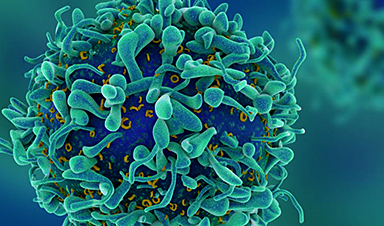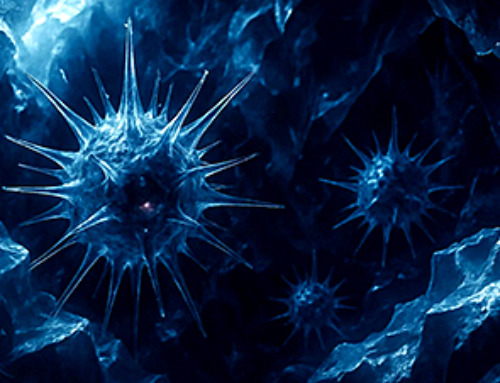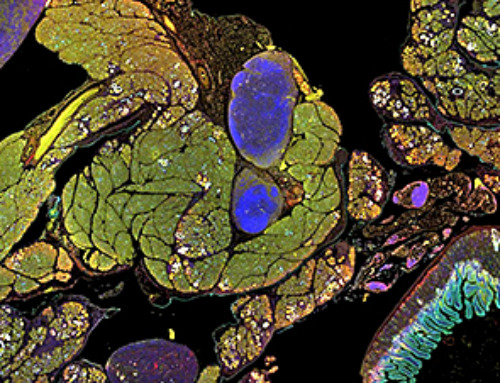Artificial Intelligence has helped scientists reveal a new form of aggressive prostate cancer, which could revolutionise how the disease is diagnosed and treated in the future.
A Cancer Research UK-funded study, published in Cell Genomics, has revealed that prostate cancer, which affects one in eight men in their lifetime, includes two different subtypes termed evotypes.
The discovery was made by an international team led by the University of Oxford, and The University of Manchester, who applied AI (artificial intelligence) on data from DNA to identify two different subtypes affecting the prostate.
The team hope their findings could save thousands of lives in future and revolutionise how prostate cancer is diagnosed and treated. Ultimately, it could provide tailored treatments to each individual patient according to a genetic test which will also be delivered using AI.
The ground-breaking research, which involved additional funding from Prostate Cancer Research and involved scientists from the University of Oxford, the University of Manchester, the University of East Anglia and the Institute of Cancer Research, London, highlights how a prostate cancer diagnosis can affect physical, emotional and mental wellbeing.
Lead researcher Dr Dan Woodcock, of the Nuffield Department of Surgical Sciences at the University of Oxford, said: ‘Our research demonstrates that prostate tumours evolve along multiple pathways, leading to two distinct disease types. This understanding is pivotal as it allows us to classify tumours based on how the cancer evolves rather than solely on individual gene mutations or expression patterns.’
The researchers worked together as part of international consortium, called The Pan Prostate Cancer Group, set up by scientists at The Institute of Cancer Research (ICR) and The University of East Anglia to analyse genetic data from thousands of prostate cancer samples across nine countries.
Crucially, the team’s collaboration with Cancer Research UK (CRUK) aims to develop a genetic test that, when combined with conventional staging and grading, can provide a more precise prognosis for each patient, allowing tailored treatment decisions.
The researchers used AI to study changes in the DNA of prostate cancer samples (using whole genome sequencing) from 159 patients.
They identified two distinct cancer groups among these patients using an AI technique called neural networks. These two groups were confirmed by using two other mathematical approaches applied to different aspects of the data. This finding was validated in other independent datasets from Canada and Australia.
They went on to integrate all the information to generate an evolutionary tree showing how the two subtypes of prostate cancer develop, ultimately converging into two distinct disease types termed ‘evotypes’.
Dr Rupal Mistry, CRUK’s senior Science Engagement Manager, said: ‘The work published today by this global consortium of researchers has the potential to make a real difference to people affected by prostate cancer. The more we understand about cancer the better chance we have of developing treatments to beat it. We are proud to have helped fund this cutting-edge work, which has laid the foundations for personalised treatments for people with prostate cancer, allowing more people to beat their disease.’
The paper ‘Genomic evolution shapes prostate cancer disease type‘ is published in Cell Genomics.
News
Studies detail high rates of long COVID among healthcare, dental workers
Researchers have estimated approximately 8% of Americas have ever experienced long COVID, or lasting symptoms, following an acute COVID-19 infection. Now two recent international studies suggest that the percentage is much higher among healthcare workers [...]
Melting Arctic Ice May Unleash Ancient Deadly Diseases, Scientists Warn
Melting Arctic ice increases human and animal interactions, raising the risk of infectious disease spread. Researchers urge early intervention and surveillance. Climate change is opening new pathways for the spread of infectious diseases such [...]
Scientists May Have Found a Secret Weapon To Stop Pancreatic Cancer Before It Starts
Researchers at Cold Spring Harbor Laboratory have found that blocking the FGFR2 and EGFR genes can stop early-stage pancreatic cancer from progressing, offering a promising path toward prevention. Pancreatic cancer is expected to become [...]
Breakthrough Drug Restores Vision: Researchers Successfully Reverse Retinal Damage
Blocking the PROX1 protein allowed KAIST researchers to regenerate damaged retinas and restore vision in mice. Vision is one of the most important human senses, yet more than 300 million people around the world are at [...]
Differentiating cancerous and healthy cells through motion analysis
Researchers from Tokyo Metropolitan University have found that the motion of unlabeled cells can be used to tell whether they are cancerous or healthy. They observed malignant fibrosarcoma [...]
This Tiny Cellular Gate Could Be the Key to Curing Cancer – And Regrowing Hair
After more than five decades of mystery, scientists have finally unveiled the detailed structure and function of a long-theorized molecular machine in our mitochondria — the mitochondrial pyruvate carrier. This microscopic gatekeeper controls how [...]
Unlocking Vision’s Secrets: Researchers Reveal 3D Structure of Key Eye Protein
Researchers have uncovered the 3D structure of RBP3, a key protein in vision, revealing how it transports retinoids and fatty acids and how its dysfunction may lead to retinal diseases. Proteins play a critical [...]
5 Key Facts About Nanoplastics and How They Affect the Human Body
Nanoplastics are typically defined as plastic particles smaller than 1000 nanometers. These particles are increasingly being detected in human tissues: they can bypass biological barriers, accumulate in organs, and may influence health in ways [...]
Measles Is Back: Doctors Warn of Dangerous Surge Across the U.S.
Parents are encouraged to contact their pediatrician if their child has been exposed to measles or is showing symptoms. Pediatric infectious disease experts are emphasizing the critical importance of measles vaccination, as the highly [...]
AI at the Speed of Light: How Silicon Photonics Are Reinventing Hardware
A cutting-edge AI acceleration platform powered by light rather than electricity could revolutionize how AI is trained and deployed. Using photonic integrated circuits made from advanced III-V semiconductors, researchers have developed a system that vastly [...]
A Grain of Brain, 523 Million Synapses, Most Complicated Neuroscience Experiment Ever Attempted
A team of over 150 scientists has achieved what once seemed impossible: a complete wiring and activity map of a tiny section of a mammalian brain. This feat, part of the MICrONS Project, rivals [...]
The Secret “Radar” Bacteria Use To Outsmart Their Enemies
A chemical radar allows bacteria to sense and eliminate predators. Investigating how microorganisms communicate deepens our understanding of the complex ecological interactions that shape our environment is an area of key focus for the [...]
Psychologists explore ethical issues associated with human-AI relationships
It's becoming increasingly commonplace for people to develop intimate, long-term relationships with artificial intelligence (AI) technologies. At their extreme, people have "married" their AI companions in non-legally binding ceremonies, and at least two people [...]
When You Lose Weight, Where Does It Actually Go?
Most health professionals lack a clear understanding of how body fat is lost, often subscribing to misconceptions like fat converting to energy or muscle. The truth is, fat is actually broken down into carbon [...]
How Everyday Plastics Quietly Turn Into DNA-Damaging Nanoparticles
The same unique structure that makes plastic so versatile also makes it susceptible to breaking down into harmful micro- and nanoscale particles. The world is saturated with trillions of microscopic and nanoscopic plastic particles, some smaller [...]
AI Outperforms Physicians in Real-World Urgent Care Decisions, Study Finds
The study, conducted at the virtual urgent care clinic Cedars-Sinai Connect in LA, compared recommendations given in about 500 visits of adult patients with relatively common symptoms – respiratory, urinary, eye, vaginal and dental. [...]





















